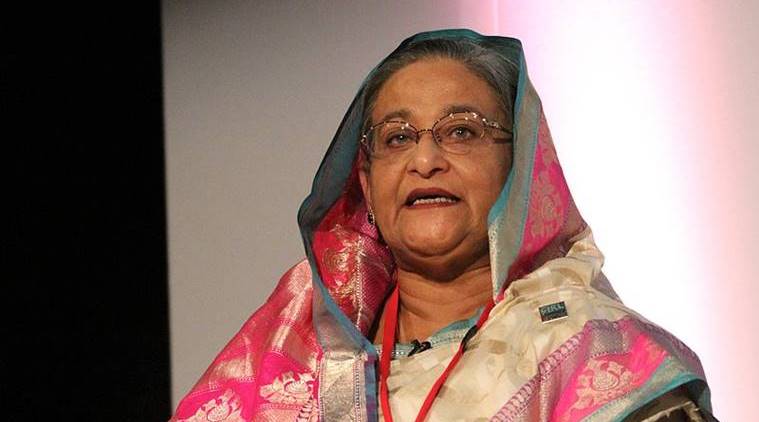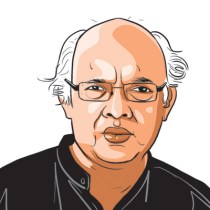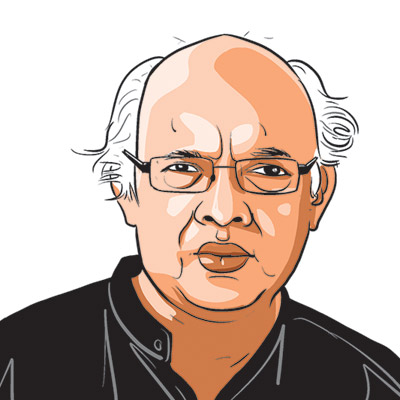In Dhaka, winter is coming
Despite its economic successes, Sheikh Hasina government faces political and social challenges as Bangladesh general elections approach

The difficulties the government faces at present are not solely of a political nature. The Editors Council, an association of editors of leading newspapers in Bangladesh, recently made its protests known against a number of provisions in the recently enacted Digital Security Act (DSA).
Election-related tension grows in Bangladesh. It is not a question of which political party will win the vote or which politician will ascend to power. The worry relates to whether or not a peaceful atmosphere will or can be maintained as the country moves to a fresh exercise of the ballot.
Quite a few reasons explain the tension, both within Bangladesh and outside. But the larger and historical truth about electoral politics in the country is that it has regularly been marred by charges of vote rigging. Add to that the inescapable truth that the country has fallen prey to periodic bouts of military and quasi-military rule for 21 years between the violent coup d’etat against the government of the country’s founder Sheikh Mujibur Rahman in 1975 and the return of his party, the Awami League, to office in 1996 under his daughter, Sheikh Hasina.
In the current circumstances, the question before the country is whether the forthcoming general election, which is expected to be held between late December and early January 2019, will be credible. The political opposition, largely represented by the Bangladesh Nationalist Party (BNP), has warned against any repeat of the election of January 2014, when as many as 153 candidates of the ruling Awami League were elected unopposed. While no one disputes such a position, there is also the reality that much of the dilemma the BNP and other anti-Awami League elements are trapped in has to do with the BNP’s and its now incarcerated leader Khaleda Zia’s decision to boycott the 2014 election. The party demanded elections under a caretaker or interim government. This presented a constitutional problem because the Sheikh Hasina government, after returning to office in January 2009, swiftly did away with the provision of a caretaker government through the 15th amendment to the constitution. In January 2014, therefore, the Awami League had a walkover. While the morality of that election may have questionable, its legitimacy was not.
Five years on, politics appears to be on more difficult ground despite the clear economic successes — higher remittances from abroad, a rise in GDP, a healthy agriculture sector — the government can clearly lay claim to. In recent weeks, attempts by Kamal Hossain, a legal luminary who served as foreign minister in Sheikh Mujibur Rahman’s government in the 1970s, and Badruddoza Chowdhury, one of the founders of the BNP and a former president, to cobble an electoral alliance into shape has aroused the government’s ire. The ruling party sees in the exercise a conspiracy to create conditions that could oust it from office.
Hossain and Chowdhury have now, rather dramatically, gone their separate ways. Hossain’s Jatiya Oikyo Front, which includes the BNP, has been drawing substantial crowds at its rallies. PM Hasina, till now dismissive of the opposition, has finally agreed to a dialogue with the front.
Meanwhile, the Jamaat-e-Islami has been de-registered as a political party. It should be recalled that the party remains guilty of collaboration with the occupation Pakistan army in 1971 and carrying out large-scale killings of Bengali intellectuals on the eve of liberation. It was rehabilitated in Bangladesh’s politics by General Ziaur Rahman, the country’s first military ruler and founder of the BNP. Its senior leaders were given ministerial berths in the cabinet formed by his widow, Khaleda Zia, in 2001. Those leaders were subsequently tried by the Sheikh Hasina dispensation as war criminals and sent to the gallows.
The difficulties the government faces at present are not solely of a political nature. The Editors Council, an association of editors of leading newspapers in Bangladesh, recently made its protests known against a number of provisions in the recently enacted Digital Security Act (DSA). The ruling party and its followers have claimed that the DSA should not worry journalists since it aims at preventing fake news or yellow journalism. The mainstream media, having for years campaigned for the notorious Section 57 of the Information and Communication Technology Act being scrapped, remain convinced that the DSA, which has replaced Section 57, is even more draconian. Curiously, a group of media personalities, essentially owners of private television channels in the country, met the prime minister a few days ago to assure her of their support for the DSA.
Compounding the issues is a combination of factors which currently exercise the public mind, notably the recent revelations by Justice Surendra Kumar Sinha in his book, A Broken Dream, about the circumstances under which he was compelled to leave the country following a Supreme Court verdict shooting down an amendment to the constitution. Sinha, the first chief justice from the Hindu community, has been in the US since leaving Bangladesh. His book has predictably raised the ire of the ruling party, which alleged that the work was part of a conspiracy designed to embarrass the government.
Meanwhile, a trial court recently delivered its verdict in a case relating to the explosions, which killed 24 people and left scores of others wounded at an Awami League rally on August 21, 2004. The tragedy occurred at a time when the BNP-Jamaat coalition was in office, leading to suspicions at the time that important figures in the then government or associated with it were involved in the act. The judgment, coming 14 years after the tragic incident, has been conclusive and convincing. A number of the key players were sentenced to death, and others to various terms of imprisonment.
Khaleda Zia’s woes have not ended. A court has now extended her imprisonment from five to 10 years in a case related to a misappropriation of funds from the Zia Charitable Trust. In the days ahead, politics promises a rather steamy winter in Bangladesh.
The writer is editor-in-charge, The Asian Age, Dhaka
For all the latest Opinion News, download Indian Express App
More From Syed Badrul Ahsan
- In Dhaka, return of a spectreThe murder of Shahjahan Bachchhu pierces the complacency that had set in with regard to the terrorism challenge, as Bangladesh braces for political turbulence…
- Letting Down A FriendIndian Army Chief Bipin Rawat’s statements have raised questions, caused dismay in Bangladesh ..
- The solitary prisonerIncarceration of Begum Khaleda Zia closes a chapter in Bangladesh politics. And opens a new one..








































No hay comentarios:
Publicar un comentario